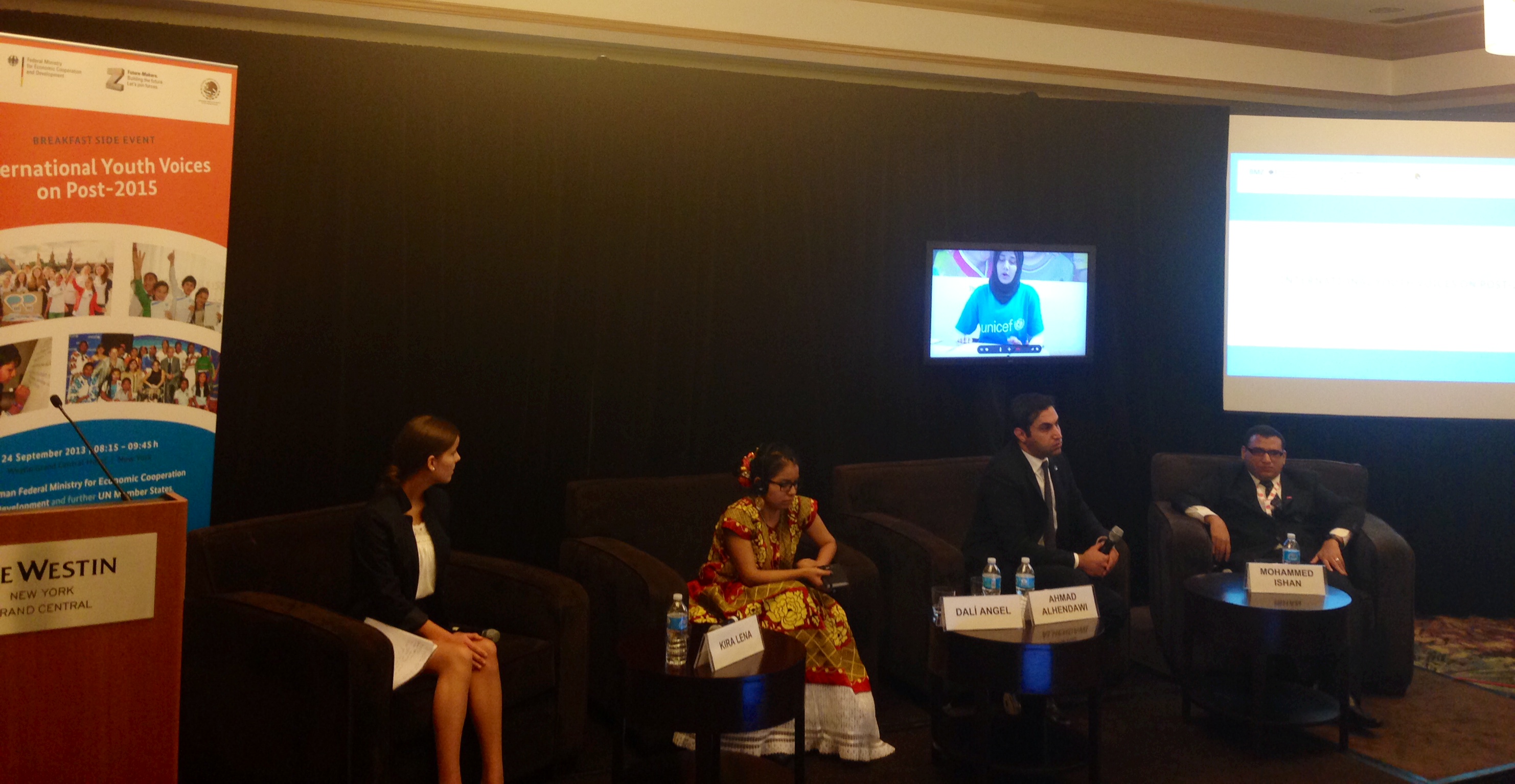On 24 September, the German Federal Ministry for Economic Cooperation and Development (BMZ), the Foreign Ministry of Mexico, the Office of the UN Secretary-General’s Envoy on Youth, and UNICEF gathered in New York to discuss the views, demands and wishes of youth for the Post-2015 Development Agenda. They were joined by youth representatives from Germany, Mexico, Sierra Leone, Sri Lanka, Turkmenistan, and the United Kingdom.
The UN Secretary-General’s Envoy on Youth, Ahmad Alhendawi, in his role as moderator stressed that the development agenda is “not only owned by the UN.” He reminded that “global citizenship is central,” reflecting the Secretary-General’s call for bringing a youth perspective into the Post-2015 negotiations.
In her opening remarks, Gudrun Kopp, Parliamentary State Secretary at the German BMZ, underlined the importance of including youth voices, especially those of youth with disabilities, as well as the need for strengthening the human rights perspective, including women’s rights, in this context.
Dr. Roberto Dondisch, the General Director for Global Issues at the Mexican Foreign Ministry, emphasized that youth should participate using social media and ICTs. “We need you (youth) to keep us honest in intergovernmental negotiations, to tell us when we get out of line,” said Dr. Dondisch. He also reminded participants that nobody must be “left behind, nobody left without a voice.”
Key responses of the World we want 2015 survey in Germany reiterated young people’s commitment to building a better future, and stressed their demand for more inclusive participation in the post-2015 negotiations. Findings from the Mexican consultation identified climate change, education and budget resources for youth as essential priorities within the Youth Development Agenda, and highlighted the need for recognizing the historical memory of indigenous youth, as well as traditional practices including in the economic sector.
Generally, the findings presented at the event reflected a similar level of commitment from youth to working in partnership with all stakeholders, as well as a set of shared priorities for development.
“We need to join forces. And we need to move from consultation to consensus building,” said the Envoy on Youth, before moving to the moderated session during which youth representatives were invited to take part.

